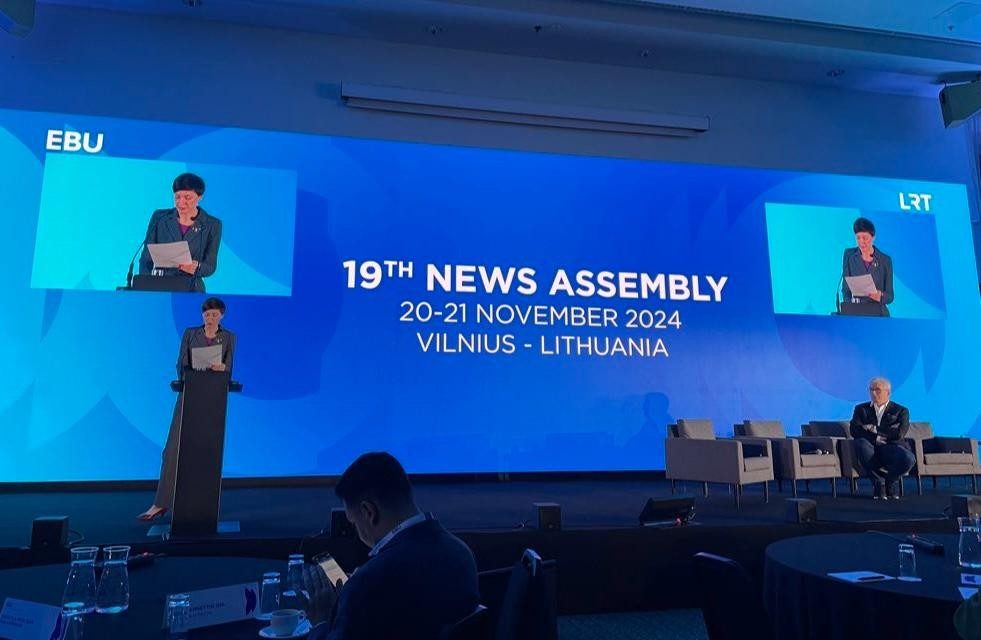VILNIUS - The EBU News Assembly, the association of European public service media, concluded its meeting in Vilnius on Thursday 21 November. Vatican Radio also attended the conference in the Lithuanian capital. The revolutionary role of artificial intelligence in the world of communication was at the centre of the discussion among journalists from the old continent.
Where is information going in an increasingly polarised world? What role do traditional media play in an environment of information fragmentation? Is artificial intelligence an opportunity or a danger for communicators? These were some of the questions discussed by around a hundred journalists who gathered in Vilnius, Lithuania, for the "News Assembly" of the EBU, the European Broadcasting Union, which brings together Europe's public service broadcasters. Vatican Radio also attended the summit, represented by Alessandro Gisotti, Deputy Editorial Director of the Dicastery for Communications.
During the two working days, topics such as editorial independence, the involvement of young people, who are increasingly less attracted by traditional media, and the use of new digital technologies, with a special emphasis on artificial intelligence, were addressed. The conference opened with speeches by Eric Scherer, Chairman of the EBU Information Commission, and Monika Garbačiauskaitė-Budrienė, Director General of LRT, the Lithuanian public broadcaster hosting the Summit. Both stressed the value of free and independent information. An emphasis that rang particularly true in a country that, given its geographical location, is experiencing the war in Ukraine with particular intensity and concern. It was the conflict unleashed by Russia, which has dramatically exceeded a thousand days, that was the focus of the roundtable with testimonies from reporters and experts who reiterated the role of public media for reliable information in a context heavily influenced by fake news and propaganda activities.
Ample space was devoted to the use of artificial intelligence in the world of communication. The workshop, with the participation of some experts from the digital world and experts in artificial intelligence, presented tools for identifying artificially generated content and strategies for its proper integration into newsrooms. In the ensuing debate, a number of points were highlighted, such as the way algorithms select content, especially political content, the issue of copyright of publications that are processed by applications such as ChatGpt, and the economic impoverishment of public media due to competition from these new platforms. For his part, Gisotti raised the risk of further widening the 'digital divide' between rich countries (and their mass media), which can bear the huge costs that new technologies require, and those that lack the resources and know-how to take advantage of new technologies.
The Gunnar Høidahl Journalism Prize, which was awarded this year to the Dutch public broadcaster NOS, was also presented during the conference where the Ebu 2024 report was presented. According to the jury's rationale, the award was given in recognition of the constant commitment, diversity of content and excellence of the television service.
vaticannews.va / gnews.cz-jav



